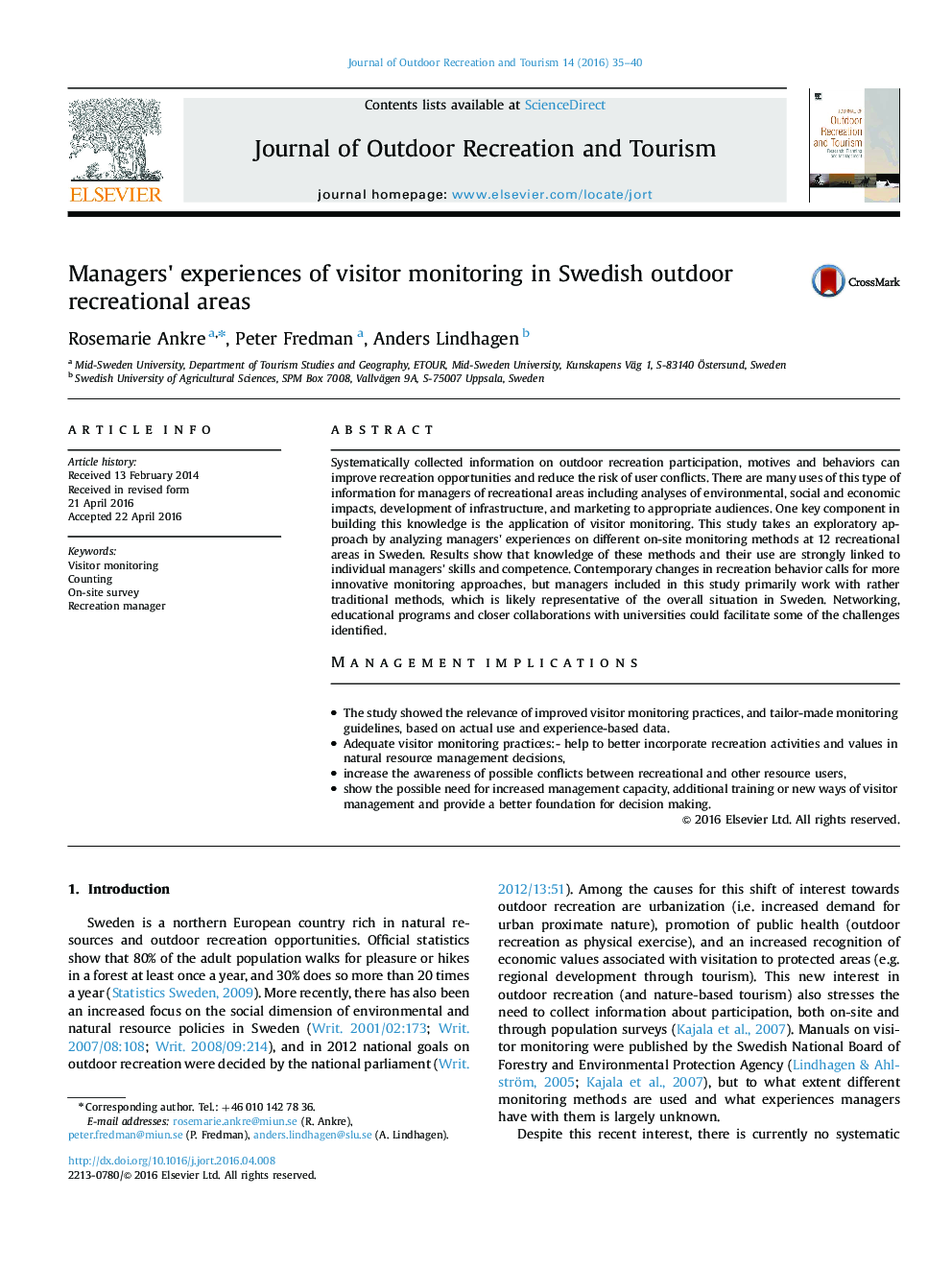| کد مقاله | کد نشریه | سال انتشار | مقاله انگلیسی | نسخه تمام متن |
|---|---|---|---|---|
| 92345 | 159949 | 2016 | 6 صفحه PDF | دانلود رایگان |
Systematically collected information on outdoor recreation participation, motives and behaviors can improve recreation opportunities and reduce the risk of user conflicts. There are many uses of this type of information for managers of recreational areas including analyses of environmental, social and economic impacts, development of infrastructure, and marketing to appropriate audiences. One key component in building this knowledge is the application of visitor monitoring. This study takes an exploratory approach by analyzing managers' experiences on different on-site monitoring methods at 12 recreational areas in Sweden. Results show that knowledge of these methods and their use are strongly linked to individual managers' skills and competence. Contemporary changes in recreation behavior calls for more innovative monitoring approaches, but managers included in this study primarily work with rather traditional methods, which is likely representative of the overall situation in Sweden. Networking, educational programs and closer collaborations with universities could facilitate some of the challenges identified.Management implications●The study showed the relevance of improved visitor monitoring practices, and tailor-made monitoring guidelines, based on actual use and experience-based data.●Adequate visitor monitoring practices:- help to better incorporate recreation activities and values in natural resource management decisions,●increase the awareness of possible conflicts between recreational and other resource users,●show the possible need for increased management capacity, additional training or new ways of visitor management and provide a better foundation for decision making.
Journal: Journal of Outdoor Recreation and Tourism - Volume 14, June 2016, Pages 35–40
